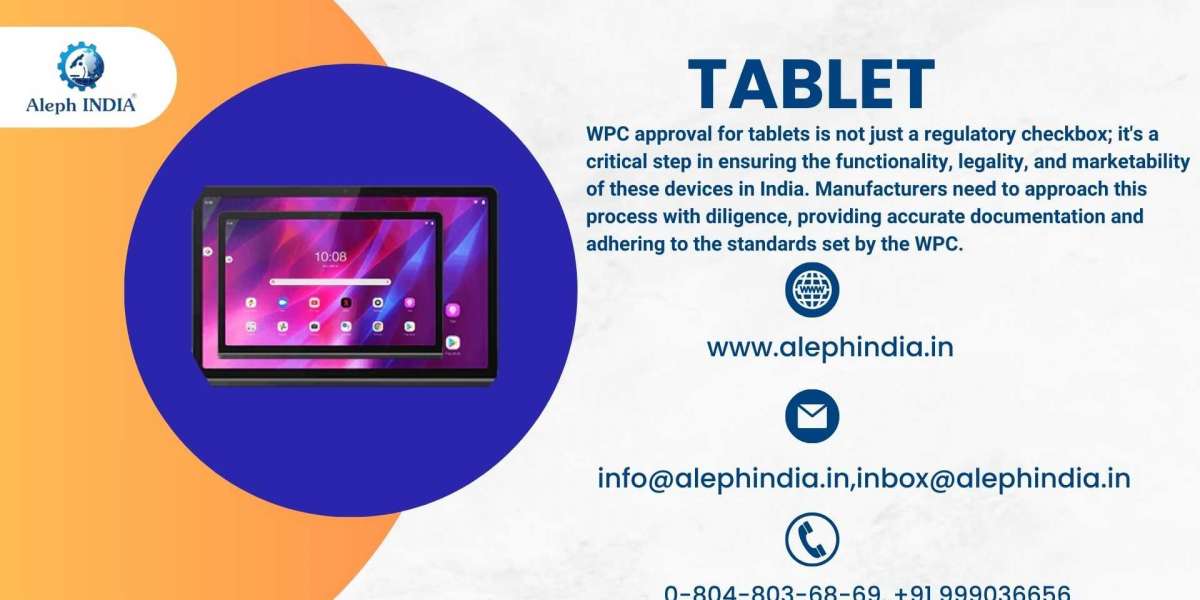In the ever-evolving world of technology, one cannot underestimate the importance of regulatory approvals. These approvals are like a badge of honor for any electronic device, including tablets. In this blog post, we’re going to dive deep into the world of WPC (Wireless Planning and Coordination) approval for tablets, exploring what it is, why it’s crucial, and how manufacturers can obtain it.
What is WPC Approval?
WPC approval is a certification mandated by the Wireless Planning and Coordination Wing of the Ministry of Communications in India. Its primary goal is to regulate the use of wireless technology to ensure interference-free operation of devices and services. In essence, WPC approval is a legal requirement for electronic devices, including tablets, to be sold and used in India.
Why is WPC Approval Crucial for Tablets?
Ensures Compatibility
WPC approval is not just a bureaucratic hurdle; it plays a vital role in ensuring the compatibility of tablets with India’s wireless networks. It guarantees that tablets won’t interfere with other electronic devices, such as cell phones or radios, and vice versa. This is critical to maintaining the integrity of wireless communications.
Legal Requirement
Without WPC approval, tablets cannot legally be sold or used in India. Any manufacturer or distributor who ignores this requirement could face severe penalties, including fines and confiscation of their products. WPC approval is, therefore, not just desirable but essential for businesses looking to tap into the vast Indian market.
Consumer Trust
Consumers are increasingly aware of the importance of regulatory approvals. When they see that a tablet has WPC approval, it instills trust in the product’s quality and reliability. This trust can significantly influence purchasing decisions, making it easier for manufacturers to sell their tablets in India.
Obtaining WPC Approval for Tablets
Testing and Certification
The road to WPC approval starts with thorough testing of the tablet to ensure it complies with the required standards. This involves assessing the device’s wireless capabilities, electromagnetic compatibility, and more. Once the tablet passes these tests, a certification body authorized by the WPC can issue the necessary certificate.
Documentation and Application
Manufacturers must submit a comprehensive set of documents along with their application for WPC approval. This includes technical specifications, test reports, and compliance statements. It’s crucial to provide accurate and complete information to expedite the approval process.
WPC Approval Fees
Manufacturers should be prepared to pay the required fees for WPC approval. These fees can vary depending on the type of device and its specifications. It’s advisable to check the latest fee schedule with the WPC to ensure compliance.
Lead Time
Obtaining WPC approval is not an overnight process. It can take several weeks or even months, depending on the complexity of the tablet and the volume of applications being processed by the WPC. Manufacturers should plan accordingly and consider this lead time in their product launch timelines.
Conclusion
WPC approval for tablets is not just a regulatory checkbox; it’s a critical step in ensuring the functionality, legality, and marketability of these devices in India. Manufacturers need to approach this process with diligence, providing accurate documentation and adhering to the standards set by the WPC.








